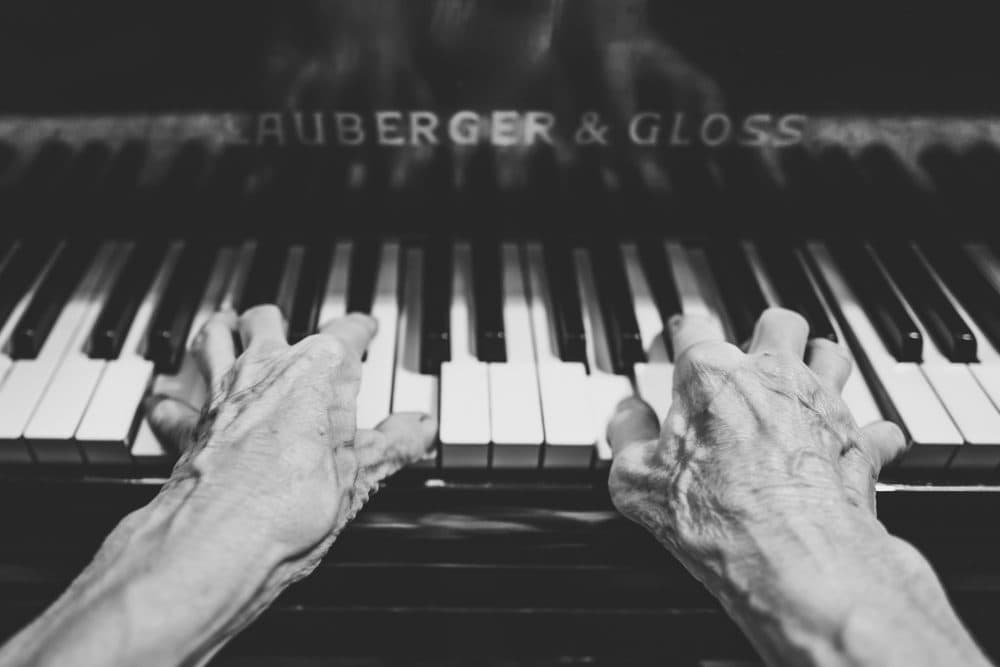Advertisement
commentary
Fight Ageism By Retiring The Offensive Metaphor, 'Getting Old'

I was having a pleasant meeting with my undergraduate intern at a Brandeis café in the Shapiro Student Center when I noticed that one of the employees was wearing a shirt that said, "Fresh never gets old." I am glad that restaurant food, like the food I serve at home, is supposed to be ever fresh, ripe and juicy. Now I'm supposed to be also glad that it is never "old:" rotten, decayed, moldy, musty, stinky, ready for the garbage.
Ageism includes prejudice, dislike and aversion based on age, and this slogan depicts "old" in not just negative but extraordinarily offensive terms. Life is the basis of language. Metaphors cling to life. Metaphors transfer to human life.
We will all grow old, if we live long enough, have a little luck, a lot of medical care and good environmental conditions from birth. And if no one blows up the Earth we live on.
Ageism is everywhere. For instance, a study of the Facebook groups that focused on older people -- with a combined 25,000 members -- found that 74 percent “vilified” elders, and 37 percent would like to ban them from public activities like driving or shopping. This data was collected by Becca Levy, a professor of psychology at the Yale School of Public Health, and her team.
Facebook does not list "age" among protected categories on its Community Standards list. The average age of the company’s employees is 28. They might not even notice ageism.
A study of the Facebook groups that focused on older people ... found that 74 percent “vilified” elders ...
After my meeting at Brandeis, I wrote to the provost, and to Sodexo, the firm that runs Einstein Bagels, arguing that Brandeis, known for its social justice agenda, and wholesome in its repudiations of racism, sexism, homophobia and trans bias, ought to be alert to ageism as well. The motto of the university, which I saw that day on a banner in Shapiro, is "This is Our House. #You Are Welcome Here." Am I not welcome, old as I am? The cafe is given space at a student center, where all the student clients are exposed to the shirt and its publicity for decline ideology.
This could all have been ignored, but it went well. Amazingly well. Provost Lisa Lynch wrote back right away with thanks. And Tim Newsom, senior marketing manager, also wrote back immediately to say they try “to be a bright spot in everyone’s day. . . We are pulling this shirt off of our approved uniform ordering website. In fact in just three weeks the stores will have completely new uniform tops to order ... We appreciate the message from this customer and the sensitivity about the matter that they expressed.”
Advertisement
One down. But, Whac-A-Mole. Last fall, the Boston Globe ran an ad for the BostonSpeakersSeries.org, and sure enough, there it was again. "It never gets old listening to brilliance ..." Homer? Socrates? Moses? Getting old is something ideas, literature, music and all the arts, can’t wait to be. People want this, too, for themselves. Old and influential, old and distinguished, old and passionate. Old and beloved. Will the Boston Speakers Series apologize to the older members of their audience — who, probably, tend to be the bulk of their audience — and vow to sin no more?
Seventeen million undergraduates flood into our universities every year, learning every day in every context. The expressions we use in ordinary speech teach our youngest children how to think, feel, speak to others. The ageist expressions I hear, as an old person, affect my mood, my mental health and my physical health. Ageism, according to Levy, can shorten lives by years. If I attend to such speech and don’t repudiate its decline ideology, and if I internalize its message that I am garbage, I may yield to depression, or to an illness I might otherwise have survived. Ageism not only hurts, ageism can kill.
“Deadwood” helps employers get rid of midlife employees, or make them wish they could afford to leave. Being called a “burden” makes old people who need a little extra attention ashamed. That parents can be called “burdens” may make adult children irritable, to think that they have to do this extra “work.” Such expressions have slipped into normal speech.
I have no fond hope that eliminating the deeply embedded parts of ageist language changes all the other parts of culture that wound. But asking in dismay, “Why did I say that?” is a milestone for many people. Isn't it time for all of us to retire the dismissive expression, "That's gettin' old," along with its ableist companion, "That's lame"? Start there. Start somewhere.
